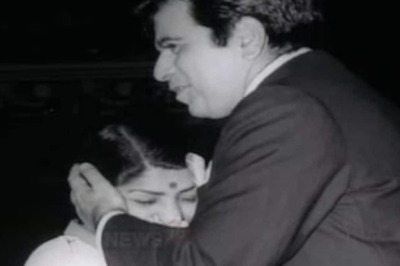
views
New Delhi: Karnataka Assembly Speaker Ramesh Kumar on Tuesday rejected the resignations of eight of the 13 Congress-Janata Dal (Secular) MLAs who want to quit the House as they had not filed their appeals in the prescribed format.
“As members of the Assembly don’t they know the format in which they should submit resignations, so things arise in my mind,” Kumar had reportedly said. “One is that they are ignorant. I pity them. The second is, they have done it deliberately just to pretend.”
So what effect does the Speaker's decision have on the ongoing political crisis in Karnataka, where the government is almost on the brink of collapse? News18 spoke to several experts to find out.
For an MLA or an MP, what is the correct procedure to resign?
“There are two conditions for an MLA or an MP if they want to tender their resignation. First, the resignation has to be drafted in the official format. It has to be very brief. Second, the resignation shouldn't be tendered under pressure,” said former secretary general of Lok Sabha and constitutional expert Subhash Kashyap.
Kashyap said the resignation should be a very simple statement. “The member simply has to state that he/she is resigning from the membership of that particular assembly with immediate effect. That's it. Any extra word makes it unacceptable. Not even the reason needs to be mentioned there,” he said.
If the resignation is written by hand and personally sent to the Speaker, it will be accepted in person after making sure that no undue pressure was exerted on the member.
“However, if the resignation has been typed and sent through some medium, the Speaker will have to satisfy himself thoroughly of possibility of external pressures on the member,” said Kashyap.
But the Speaker clearly found something amiss in the resignations of the eight MLAs. On what basis could he reject a resignation?
“If the Speaker has any reasons to believe that a particular member, or more, resigned in stress or under any external pressure, he may not accept the resignations. The Speaker could also reject the resignation if he gets any information from his sources, in police, etc., that the member is not putting down his or her papers voluntarily,” said another former Lok Sabha Secretary General, PDT Acharya.
Acharya said the Speaker has the powers to conduct an inquiry into the reasons behind the resignations of one or more MLAs and take time to satisfy himself that no undue powers are at play.
“The reason for this level of scrutiny is that it is quite unlike a member resigning from a Cabinet. Resigning from an assembly means that your constituency will be unrepresented for some time and to check probably this very circumstance our constitution framers gave such powers to the speaker," Acharya said.
So what recourse is available to an MLA when his/her resignation is rejected?
“One could approach the courts and challenge the decision. However, I don't know the success such an MLA may have in court since the constitution in Article 190, for assembly, and 101, for Parliament, gives absolute discretion to the Speaker. His opinion matters over everyone else's. Since the Speaker has the power to adjudicate on the matter, the court may only check if all procedures laid down in the constitution have been followed. It is unlikely to overturn the Speaker's decision," Acharya added.
So is the Karnataka assembly now moving towards a floor test? Could the anti-defection law kick in at any point?
“I don't know. Since these members are still members of their respective parties and their resignations from the Assembly have not been accepted, theoretically the government still stands. So I don't know why a floor test will be called for in such a circumstance,” said Acharya.
“However, what I think can happen is that these MLAs could tell the governor they are now supporting the BJP. There is a statutory period of seven days before the anti-defection comes in play, the governor could within that time ask for a floor test," he added.

















Comments
0 comment